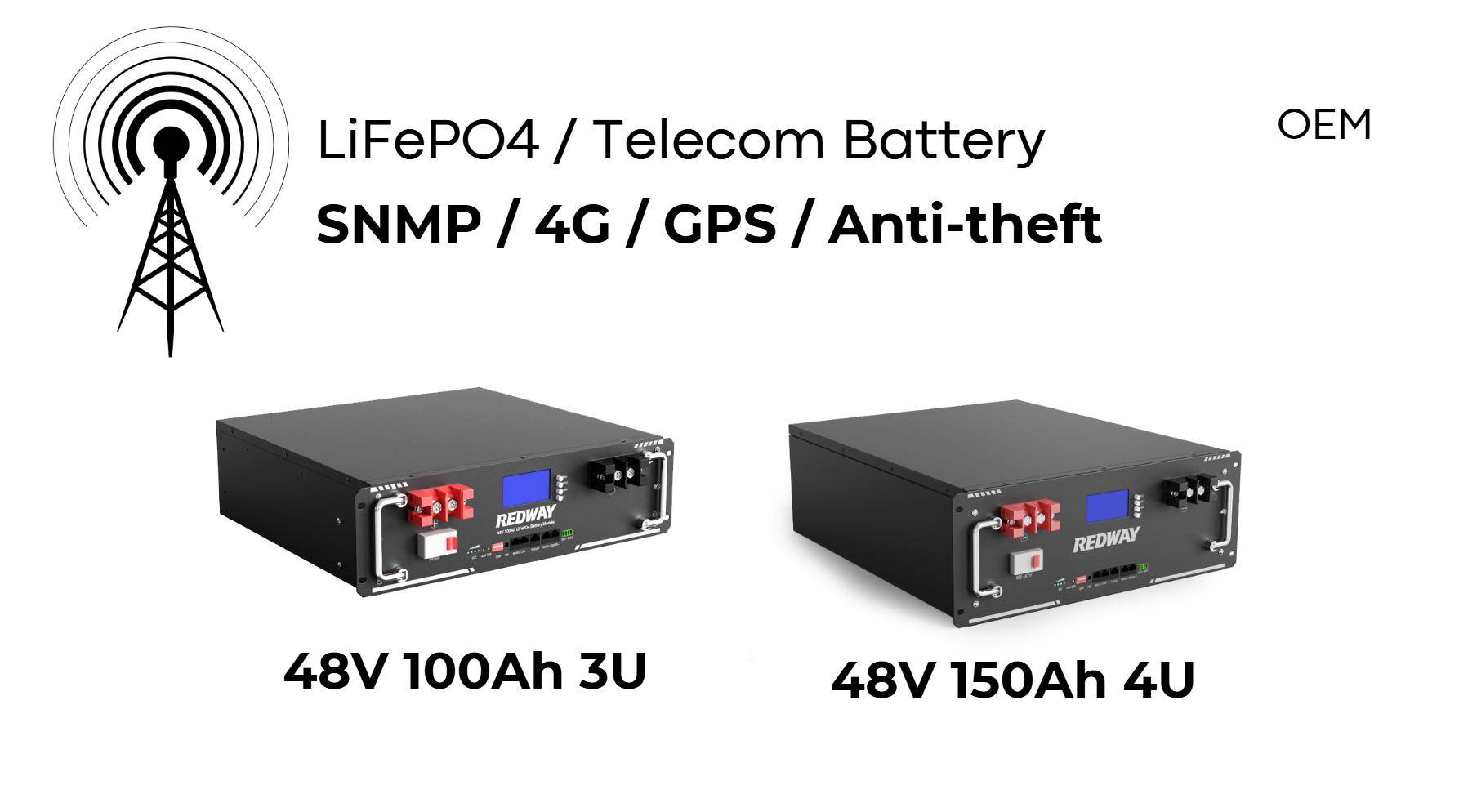
Blog
How Do Telecom Lithium Batteries Enhance Mobile Network Connectivity?

Telecom lithium batteries ensure uninterrupted mobile network connectivity by providing reliable backup power during outages. They offer high energy density, longer lifespans, and faster charging compared to traditional batteries. Their lightweight design and adaptability to extreme temperatures make them ideal for remote and urban telecom towers, enhancing network reliability and supporting 5G expansion.
What Are Telecom Lithium Batteries?
Telecom lithium batteries are advanced energy storage systems designed to power cellular towers and network infrastructure. They utilize lithium-ion technology, such as LiFePO4 (lithium iron phosphate), to deliver stable voltage, high efficiency, and thermal stability. These batteries are critical for maintaining connectivity during grid failures, natural disasters, or peak demand, ensuring seamless voice and data transmission.
Why Are Lithium Batteries Preferred Over Traditional Options?
Lithium batteries outperform lead-acid alternatives with 3-5x longer lifespans, 50% lighter weight, and 95% efficiency. They withstand temperatures from -20°C to 60°C and charge 70% faster. Their modular design allows scalable deployment, reducing space and maintenance costs. For telecom operators, this translates to lower total ownership costs and fewer replacements over a 10-15 year service period.
| Feature | Lithium Batteries | Lead-Acid Batteries |
|---|---|---|
| Lifespan | 10-15 years | 3-5 years |
| Weight | 50% lighter | Bulky |
| Charging Time | 2-4 hours | 8-10 hours |
Operators in Southeast Asia have reported 40% lower energy costs after switching to lithium systems, according to a 2023 GSMA report. The batteries’ ability to function in harsh environments—such as desert heat or Arctic cold—makes them indispensable for global deployments. Additionally, their modular architecture enables operators to scale capacity incrementally, aligning with network expansion needs without overinvesting in infrastructure.
How Do Lithium Batteries Improve Network Reliability?
Lithium batteries provide instant failover during power outages, ensuring zero downtime for 5G and IoT networks. Advanced battery management systems (BMS) monitor voltage, temperature, and state of charge in real time. For example, Ericsson’s Power Bank solution uses lithium batteries to sustain towers for 8-12 hours during blackouts, preventing service disruptions in regions with unstable grids.
What Innovations Are Shaping Lithium Battery Technology?
Solid-state electrolytes, AI-driven predictive maintenance, and hybrid systems integrating solar/storage are key trends. Companies like NEC Energy Solutions deploy lithium batteries with self-healing circuits that reduce degradation by 30%. Meanwhile, graphene-enhanced anodes boost energy density by 40%, enabling smaller batteries to power high-demand urban telecom hubs.
| Innovation | Impact |
|---|---|
| Solid-State Electrolytes | 50% faster ion transfer |
| AI Predictive Analytics | 20% fewer failures |
| Graphene Anodes | 40% higher capacity |
Recent trials by Huawei in Brazil demonstrated that AI-optimized lithium batteries extended tower uptime by 22% during monsoon seasons. Another breakthrough involves wireless BMS updates, allowing remote performance tuning without physical access to batteries. These advancements are critical as networks transition to energy-intensive applications like augmented reality and autonomous vehicles.
How Do Lithium Batteries Support Renewable Energy Integration?
Lithium batteries store excess solar/wind energy for use during low-generation periods, enabling off-grid telecom towers to operate sustainably. In India, Reliance Jio’s 100,000+ towers use lithium batteries paired with solar panels, cutting diesel consumption by 80%. This hybrid approach reduces carbon emissions and operational costs while ensuring 24/7 connectivity in remote areas.
What Are the Environmental Benefits of Lithium Batteries?
Lithium batteries are 90% recyclable, reducing e-waste versus lead-acid alternatives. Their longer lifespan decreases replacement frequency, while zero-emission operation aligns with global net-zero goals. For instance, Vodafone’s European network achieved a 50% carbon reduction by switching to lithium batteries and renewables, as reported in their 2023 sustainability audit.
How to Maintain and Optimize Lithium Battery Performance?
Optimal performance requires keeping batteries at 20-80% charge, avoiding extreme temperatures, and updating BMS firmware quarterly. AT&T’s maintenance protocol includes bi-annual thermal imaging to detect hotspots and annual capacity testing. These practices extend battery life by 3-4 years beyond warranty periods, per industry case studies.
Expert Views
“Lithium batteries are revolutionizing telecom infrastructure. Their ability to pair with renewables and AI analytics creates a future-proof energy ecosystem. We’ve seen tower outages drop by 60% in clients adopting lithium solutions,” says Dr. Elena Torres, Chief Technology Officer at GreenPower Innovations.
Conclusion
Telecom lithium batteries are indispensable for building resilient, sustainable mobile networks. Their technical superiority over legacy systems ensures connectivity in emergencies while enabling cost-effective renewable integration. As 5G expands globally, lithium technology will remain the backbone of telecom energy strategies.
FAQs
- How long do telecom lithium batteries last?
- 10-15 years, versus 3-5 years for lead-acid batteries.
- Can lithium batteries operate in extreme cold?
- Yes, advanced models function at -40°C with heated enclosures.
- Are lithium batteries safer than lead-acid?
- LiFePO4 batteries are non-combustible and UL-certified for telecom use.
- What’s the ROI for switching to lithium?
- Most operators break even in 2-3 years via reduced fuel and maintenance costs.
Know more:
How Do Telecom Lithium Batteries Enhance Mobile Network Connectivity?
What Powers Telecom Base Stations During Outages?
How Do Telecom Lithium Batteries Ensure Reliable Power in Remote Locations?
How Do Telecom Batteries Ensure Uninterrupted Communication During Emergencies?
How Are Telecom Lithium Batteries Customized for Unique Needs?
How Are Telecom Lithium Batteries Revolutionizing Global Connectivity?













